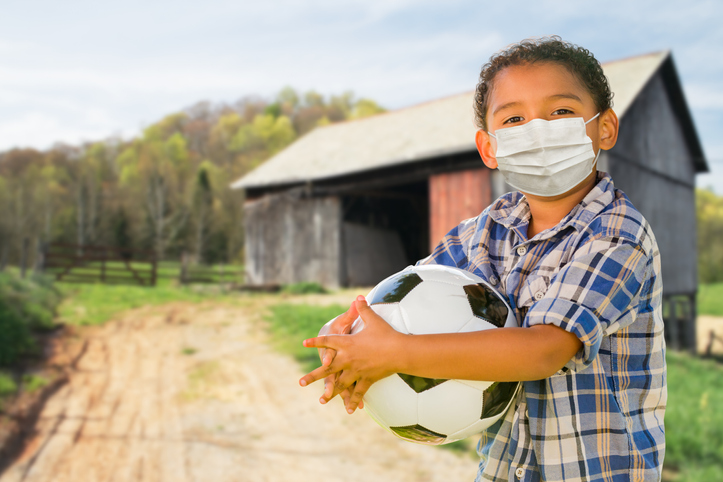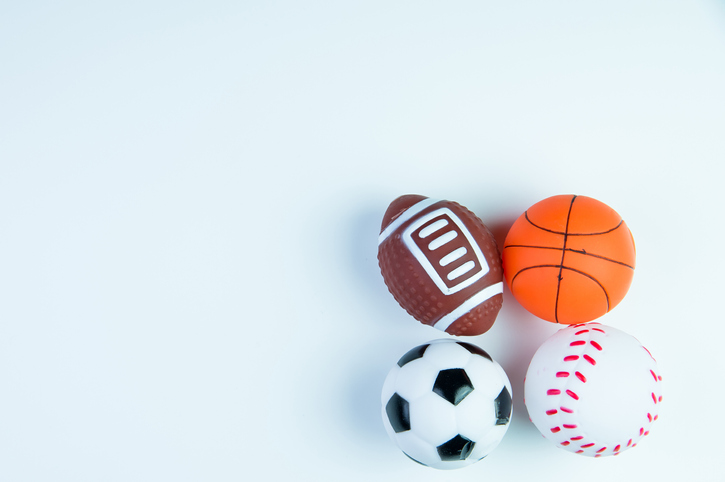Think Your Toddler is Too Young To Play Organized Sports? This May Change Your Mind

By Joy Stephenson-Laws, J.D., Founder
My son Kyle, a millennial, shared his story about growing up. He suggested that if he had participated in organized sports during his adolescence, he may have gotten into less trouble and had more confidence as a young adult. But as a mom, my focus was on keeping him healthy and active and while I emphasized sports in general, frankly I did not focus much on the need to get him involved in organized sports.
Kyle is now in his late twenties, but if he were under the age of five again researchers of a recent study conducted in Ireland might suggest I get him involved in organized sports. This may seem very young, however, “One-year-old boys with developmental delays were less likely to have developed emotional problems or poor conduct by age 5 if they regularly attended a sports club or group,” the researchers reported, according to this recent Medical Xpress report discussing their study.

The study looked at data on more than 11,000 children collected between December 2007 and June 2008.
“At the age of 1, about 15% of the children had shown some sign of developmental delay, either in motor skills, social skills, communication or problem solving. Even that young, these kids already were exhibiting more behavioral difficulties than their peers who were developing normally,” according to the report.
The parents of the children filled out questionnaires when their children turned three-years-old and five-years-old. These questionnaires aimed to assess issues such as “emotional turmoil,” “lashing out at others” and attentional issues.
The researchers found significant evidence which suggested that boys who participated in sports such as soccer, rugby and basketball had fewer behavioral problems at ages three and five.
It may seem absurd to get a child as young as three involved in an organized sport such as soccer. After all, how will they follow the rules or really play the sport properly? Will they even be any good?
Well, it's not really about strictly complying with the rules."Weekly engagement in organized sport could provide a regular and reliable way for at-risk children to have their challenging behaviors modulated in a social environment outside of the home," said one of the lead researchers.
"Whilst playing sport, in principle at least, the children are getting regular opportunities to practice precursor skills for the development of self-regulation."
You just never know how young minds may be affected by certain habits and activities. And I think many parents would be surprised and delighted to find that their four-year-old can actually play something such as soccer quite well for their age. We have to remember that kids are like sponges and soak everything up. Think about how well young kids have the ability to learn multiple languages and how adults really struggle when trying to learn a new language.
What about young girls?
"There is research evidence to suggest that girls develop self-regulation earlier, and at a faster rate, than boys in this period of life," said one of the lead researchers.
"So, combined with the fact that boys' behavioral problems were higher to begin with and were trending up in these data, boys simply might have had more to gain from regular engagement in structured enrichment activities undertaken outside of the home—such as engagement in organized sports."
(Of course, young girls can still greatly benefit from playing sports and participating in regular physical activity).
It is also important to note that making organized sports a part of your child’s life as they get older can also be extremely beneficial.
“Sporting activities encourage children to help others and to develop altruism and empathy. Adolescents who play sports are friendlier to peers, especially to those involved in similar activities, and have less contact with peers who are inclined to engage in problematic behavior,” according to the National Institutes of Health (NIH).
But how do we navigate COVID-19 and organized sports?
We are living in some challenging times, to say the least. It’s understandable if you are hesitant about getting your children involved in organized sports out of fear that they may contract COVID-19 and even spread it to you. You want to protect yourself and your kids.
This is really a personal choice, but I do think there are proactive steps you can take to safely involve your child in organized sports. The teams may have to be smaller, but your child can still benefit from this structure and activity.
You can create a "pod."
This is basically a bubble created by families where a limited amount of people are allowed to interact with each other physically. It is very hard to social distance with team sports. Creating a safe pod requires that all participants agree to not socialize with anyone else and follow all COVID-19 protocols. For example, if you create a pod with one family where your kids play basketball together it would be unfair of you to attend a social gathering outside of this pod (even if it is just with five other people).
To learn more about how to create a safe pod, read here.
Don't forget about nutrition.
Good nutrition is important for every child and adolescent but especially if he or she plays sports. We need to ensure they have the proper nutrients, such as vitamins and minerals, to fuel their bodies both before and after physical activity. To learn more about what nutrients your child may need, read here.
And last but not least, make sure that your child takes routine nutrient tests in order to identify any nutrient imbalances or deficiencies. If an imbalance or deficiency is discovered, a competent healthcare professional can help you and your child make the necessary dietary changes and recommend quality supplements if necessary.
Enjoy your healthy life!
Disclaimer: This article is not intended to provide medical advice. Please consult with your doctor or another competent healthcare practitioner to get specific medical advice for your situation.
The pH professional health care team includes recognized experts from a variety of health care and related disciplines, including physicians, attorneys, nutritionists, nurses and certified fitness instructors. This team also includes the members of the pH Medical Advisory Board, which constantly monitors all pH programs, products and services. To learn more about the pH Medical Advisory Board, click here.







